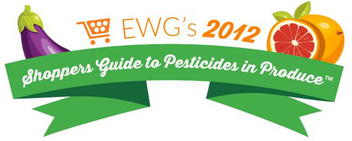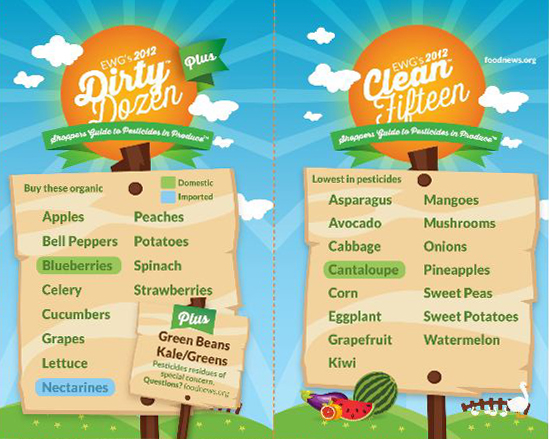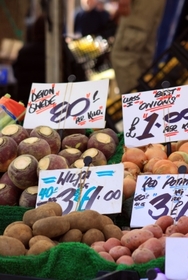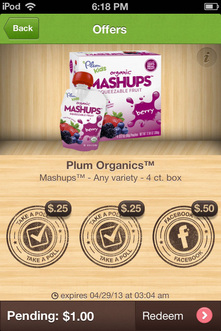Mom always said. "Eat your fruits and vegetables"! That's because the health benefits of a diet rich in fruits and vegetables outweigh the risks of pesticide exposure. Use EWG's Shopper's Guide to Pesticides™ to reduce your exposures as much as possible, but eating conventionally-grown produce is far better than not eating fruits and vegetables at all. The Shopper's Guide to Pesticides in Produce™ will help you determine which fruits and vegetables have the most pesticide residues and are the most important to buy organic. You can lower your pesticide intake substantially by avoiding the 12 most contaminated fruits and vegetables and eating the least contaminated produce.
This year, EWG has expanded the Dirty Dozen™ with a Plus category to highlight two crops -- green beans and leafy greens, meaning, kale and collard greens - that did not meet traditional Dirty Dozen ™criteria but were commonly contaminated with highly toxic organophosphate insecticides. These insecticides are toxic to the nervous system and have been largely removed from agriculture over the past decade. But they are not banned and still show up on some food crops.
Further more, Commodity crop corn used for animal feed and biofuels is almost all produced with genetically modified (GMO) seeds, as is some sweet corn sold for human consumption. Since GMO sweet corn is not labeled as such in US stores, EWG advises those who have concerns about GMOs to buy organic sweet corn.
Download your copy of EWG's 2012 Shopper's Guide to Pesticides in Produce as a PDF
This year, EWG has expanded the Dirty Dozen™ with a Plus category to highlight two crops -- green beans and leafy greens, meaning, kale and collard greens - that did not meet traditional Dirty Dozen ™criteria but were commonly contaminated with highly toxic organophosphate insecticides. These insecticides are toxic to the nervous system and have been largely removed from agriculture over the past decade. But they are not banned and still show up on some food crops.
Further more, Commodity crop corn used for animal feed and biofuels is almost all produced with genetically modified (GMO) seeds, as is some sweet corn sold for human consumption. Since GMO sweet corn is not labeled as such in US stores, EWG advises those who have concerns about GMOs to buy organic sweet corn.
Download your copy of EWG's 2012 Shopper's Guide to Pesticides in Produce as a PDF





 RSS Feed
RSS Feed